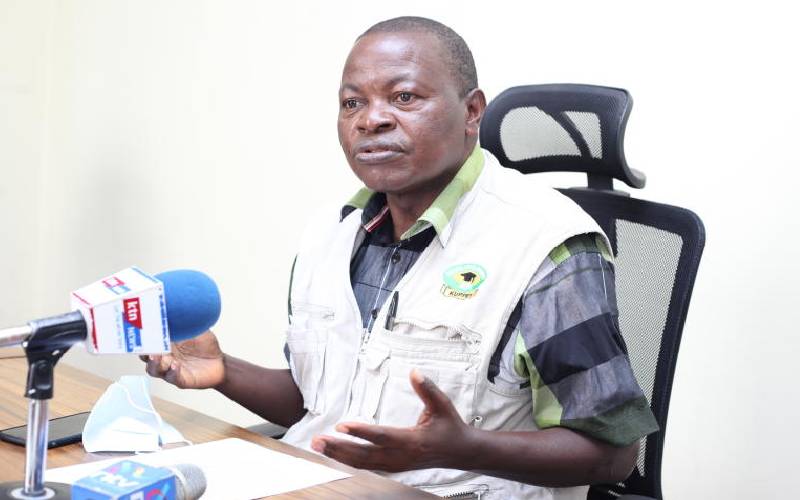×
The Standard e-Paper
Home To Bold Columnists

Kuppet Secretary-General Akello Misori said the Covid-19 deaths recorded were a result of pre-existing conditions. [File, Standard]
Some 36 teachers have died of Covid-19 since March as calls to tighten reopening plans rise.